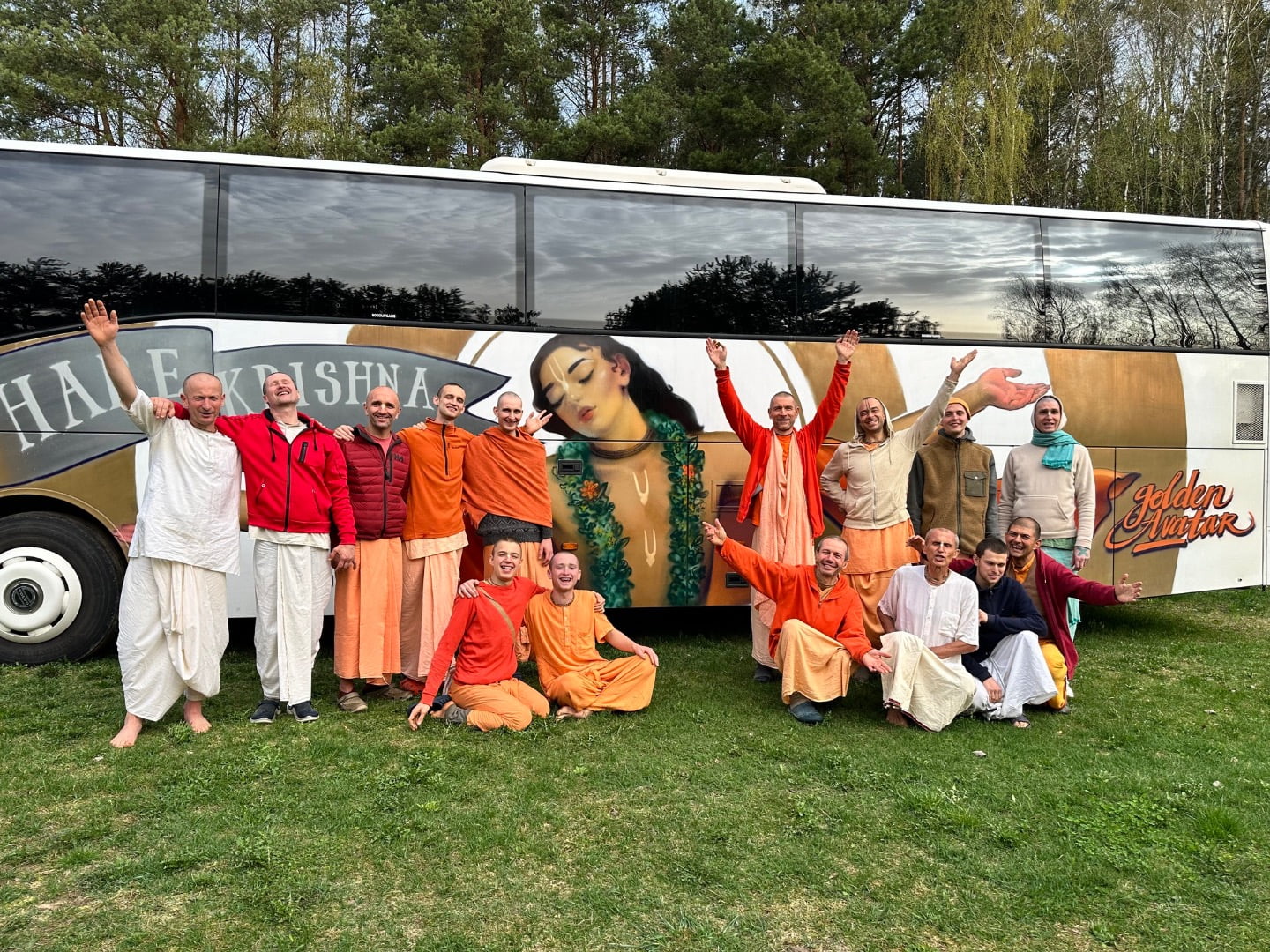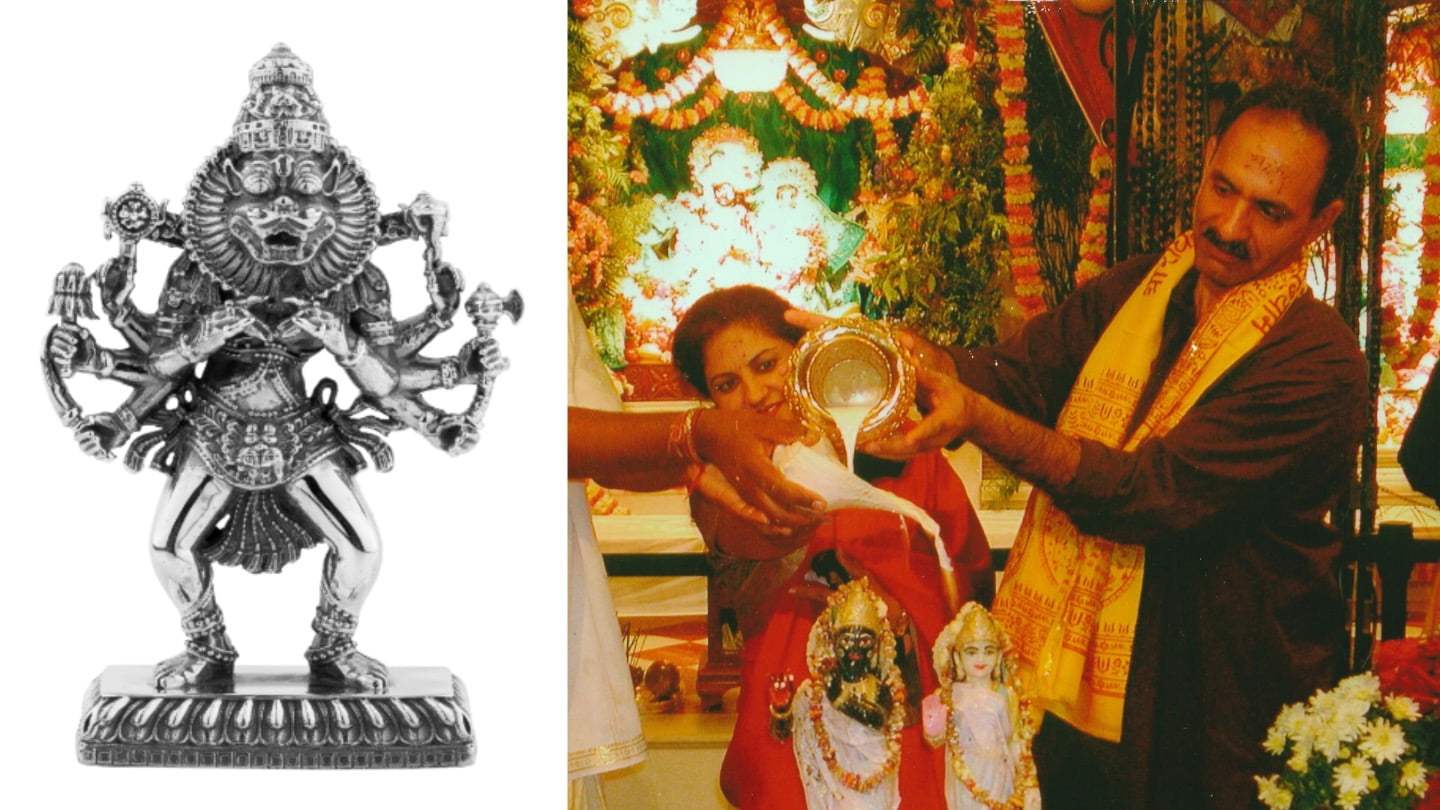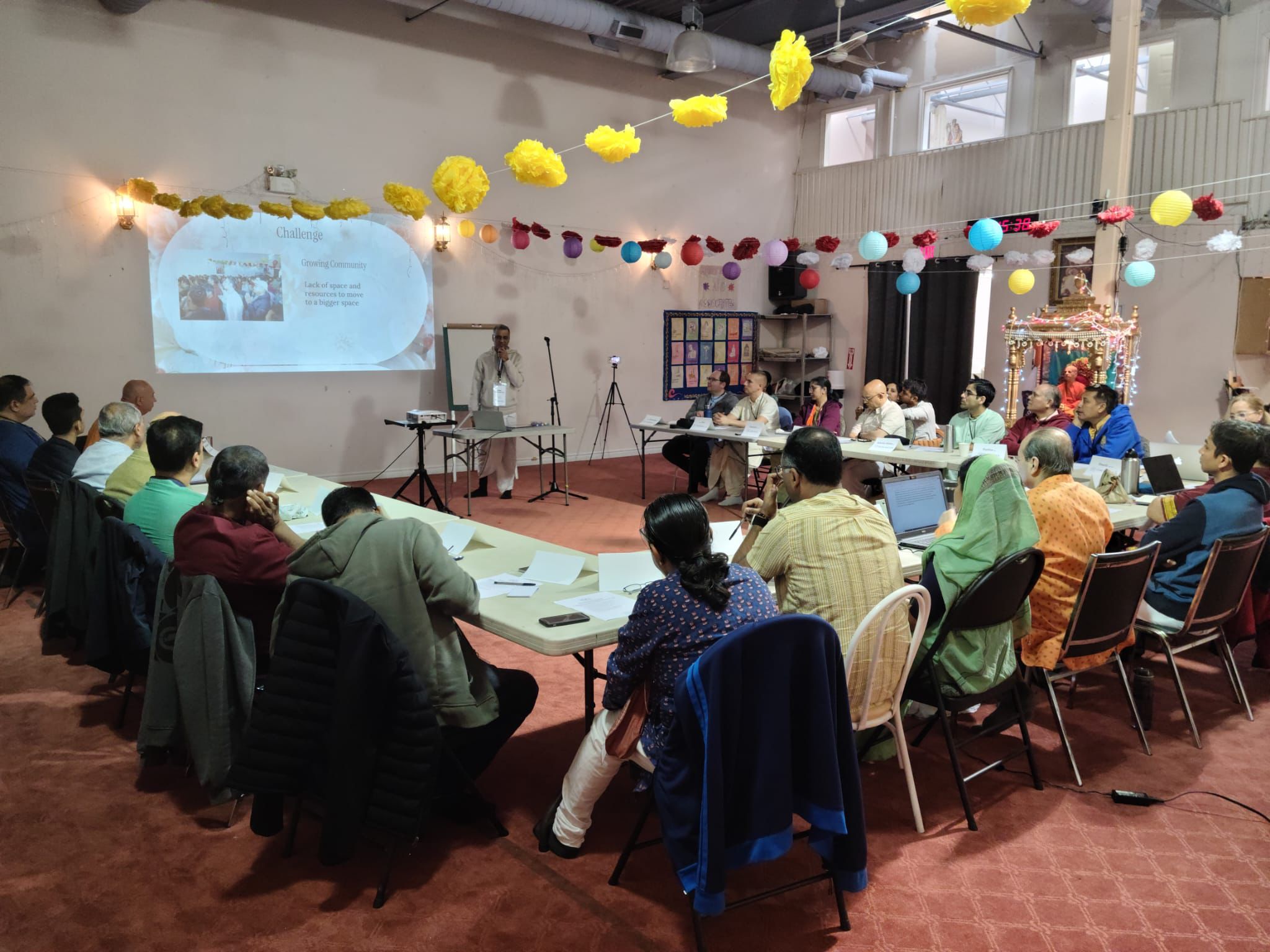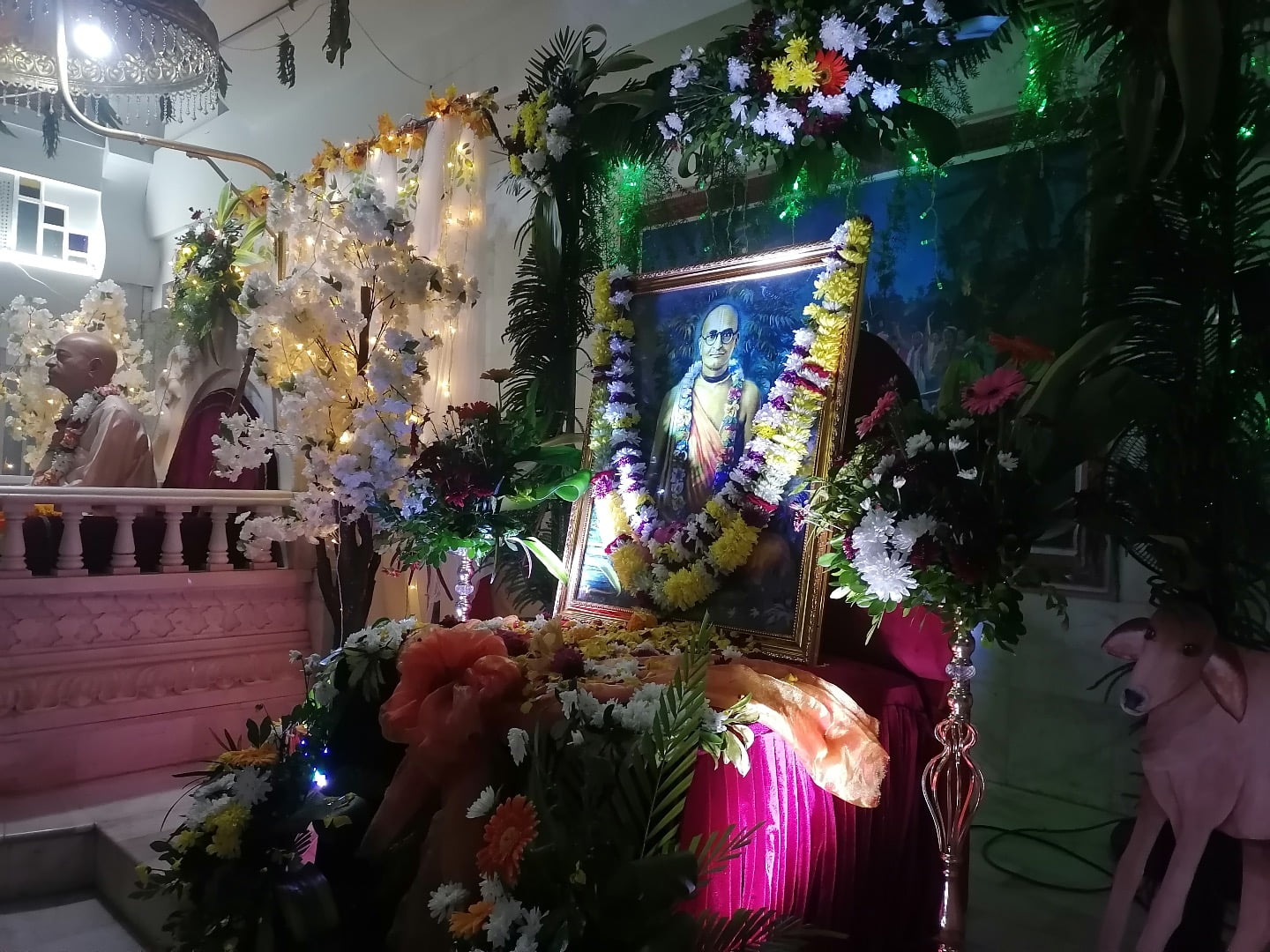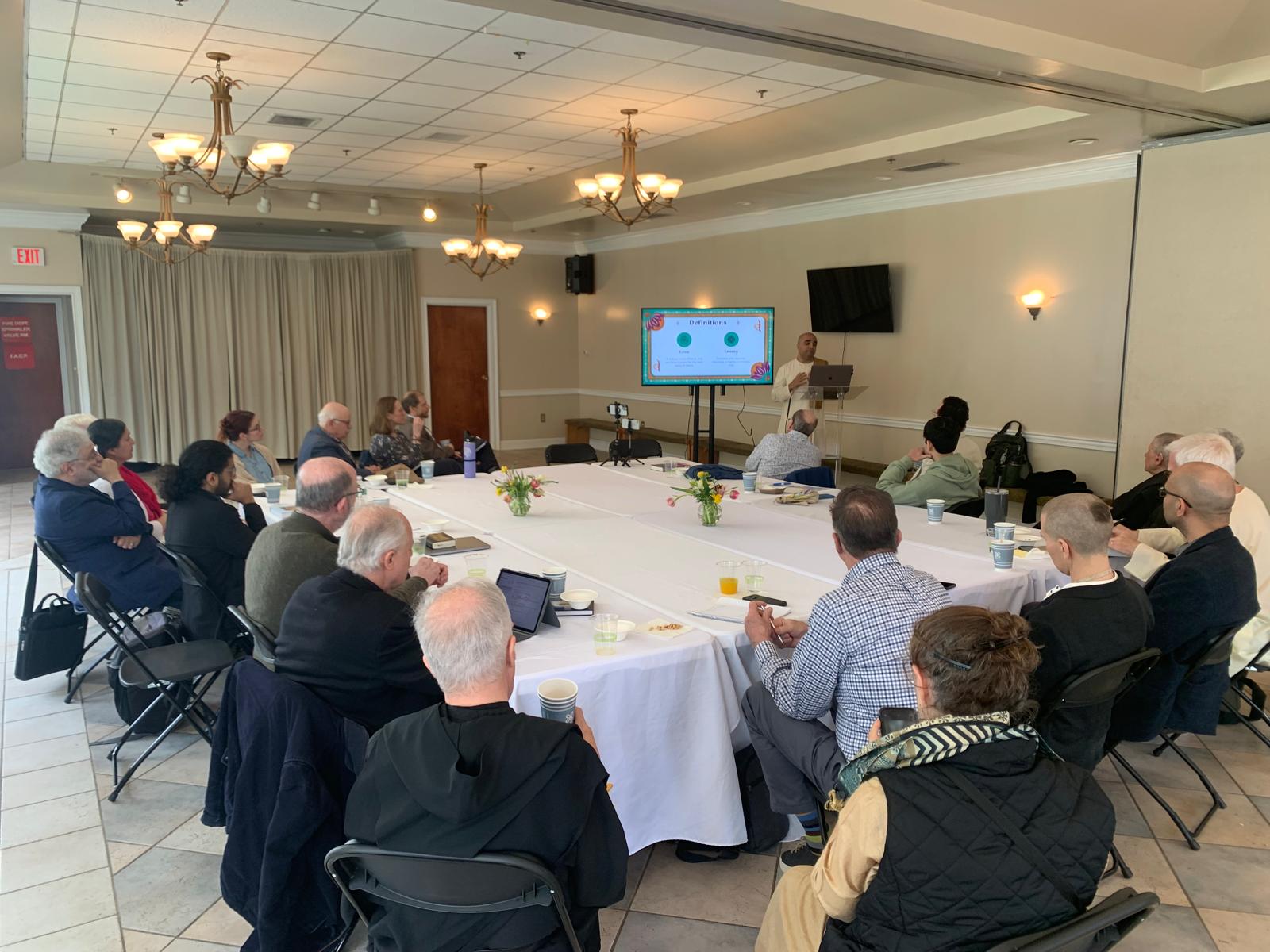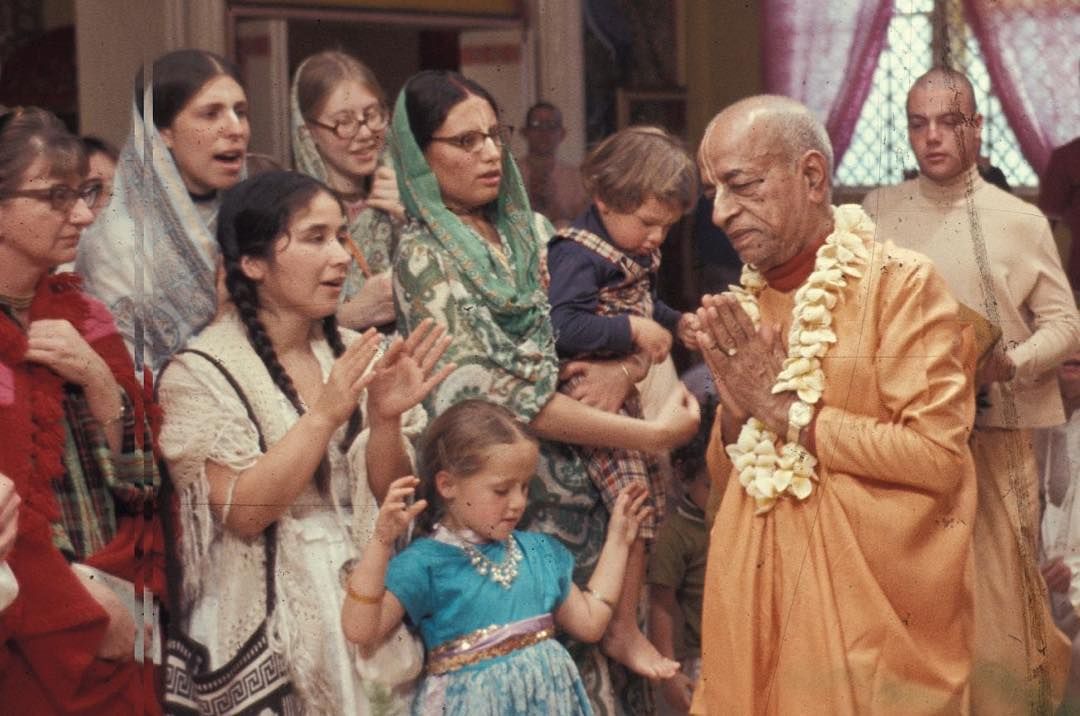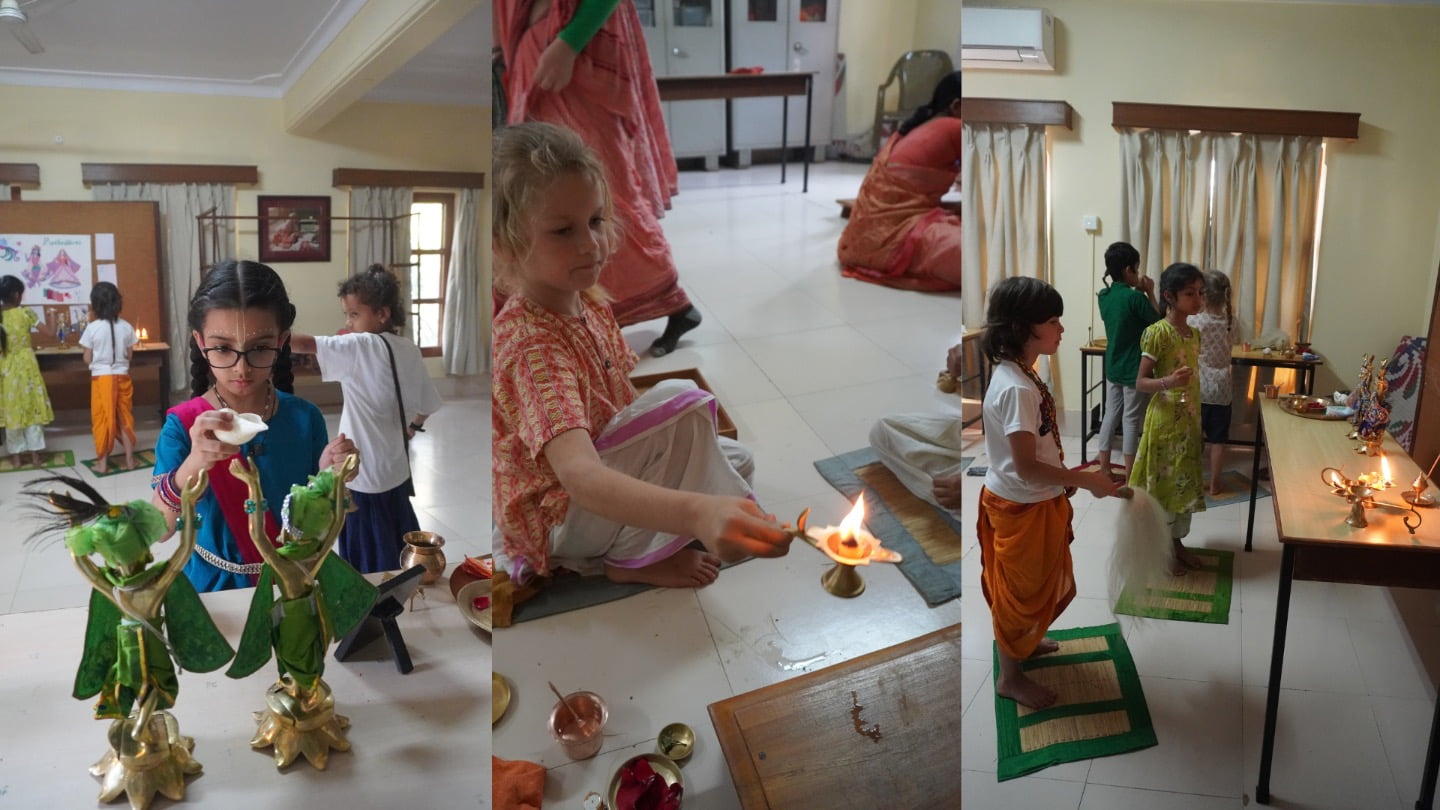Valisudana Das Loves Conspiracies
By Kaunteya Das | Apr 20, 2020

He never found a conspiracy theory he didn’t like.
Valisudana – not his real name – craves hearing how malevolent groups hatch secret, unlawful, harmful plans for evil, destructive purposes. He visualizes the selfish elites planning horrible misdeeds that cause suffering for billions of humans – or rather pain for all moving and non-moving living entities.
Valisudana doesn’t have the means or the intellectual integrity to confirm such stories; he gobbles them up whole, unexamined, and immediately spreads them around, hoping to building himself up as some sort of alternative authority figure.
Of course, the history of the world is replete with instances of fiendish, influential people doing very bad things. Therefore I am not trying to wholesomely debunk, delegitimize or demonize all conspiracies. Many ended up being true!
Gaudiya-vaisnava canonical literatures abound with retellings of conspiracies, and Srila Prabhupada liberally mentions them. Think of the “colossal conspiracy” devised to deprive the Pandavas “of the rightful claim of the kingdom of Hastinapura.” (SB 1.9.46), or of the “conspiracy to take the Syamantaka jewel away from Satrajit.” (Krishna Book, Ch. 57) Or think of the “conspiracy of Ramacandra Khan” to defame Haridas Thakura (Cc, Antya 3.133).
Here we’ll analyse what may drive Valisudana – and others – to collect and circulate conspiracy theories, especially in times of crisis and uncertainty, such as the present pandemic.
Valisudana, for instance, has heard a million times that information should be confirmed by sastra, guru and sadhus – or, when the information is not about transcendental subjects – at least by solid observation (pratyaksa) and logic (anumana). Why, then, he is so eager, so quick to guzzle up and publicly regurgitate any conspiracy he hears on the World Weird Web?
Why he and his cronies do that? Let’s study what may motivate them.
Conspiracy theorists are victims of misinformation
David Robson, author of The Intelligence Trap, writes in his article “Why smart people believe coronavirus myths”:
“From students to politicians, many smart people have fallen for dangerous lies spread about the new coronavirus. Why?”
https://www.bbc.com/future/article/20200406-why-smart-people-believe-coronavirus-mythss
Robson continues: “It is a sad truth that any health crisis will spawn its own pandemic of misinformation.” When Aids was the focus, many dangerous lies surfaced, including “the spectacularly unfounded theory that it could be treated with goat’s milk . . . Now, we are seeing a fresh inundation of fake news – this time around the coronavirus pandemic. From Facebook to WhatsApp, frequently shared misinformation include everything from what caused the outbreak to how you can prevent becoming ill.”
Sometimes such ideas are deadly: “a recent report from one province in Iran found that more people had died from drinking industrial-strength alcohol, based on a false claim that it could protect you from Covid-19, than from the virus itself.”
[Please be careful, Valisudana Prabhu; sharing on your Facebook profile only takes a couple of clicks; but would it be that easy to shake off the consequences of your disseminating risky misinformation? You know, it’s called karma.]
Valisudana – like many of us – is constantly bombarded with input all day, every day – and can’t validate what is true and what is false (even when he would like to). Therefore he relies on his (fallible) gut feeling.
Valisudana is also victimized by the tricks communicators use to make their message feel more “truthy.” For instance, Eryn Newman, at the Australian National University, has shown that simply putting an image alongside a message makes it easier for Valisudana to believe in the accuracy of the message.
“Even the simple repetition of a statement,” David Robson explains, “whether the same text, or over multiple messages – can increase the ‘truthiness’ by increasing feelings of familiarity, which we mistake for factual accuracy.”
[Valisudanaji, you read the same story three times and now you think it must be true? Come on!]
What else may motivate conspiracy theory mongers? Could it be a reflection of their disappointing existence?
Underdogs adore conspiracy theories
As Roger Cohen writes in the New York times: “captive minds . . . resort to conspiracy theory because it is the ultimate refuge of the powerless. If you cannot change your own life, it must be that some greater force controls the world.”
https://www.nytimes.com/2010/12/21/opinion/21iht-edcohen21.html
[So, Valisudana, could it be that your mind is just “captive”?]
Carrie Leonard, postdoctoral fellow in psychology at the University of Lethbridge in Canada, writes (https://fivethirtyeight.com/features/conspiracy-theories-cant-be-stopped/):
“[I]f you’re part of a group that is marginalized by society or lacks power in important ways you’re more likely to believe in conspiracy theories. That means being a member of a racial minority is a predictor of conspiracy belief — and so is unemployment, low economic status, or even just being a member of a cultural group that’s looked down on by people in positions of power.” (Something like the Hare Krishnas?)
[So, Valisudana Prabhu, could it be that you are just a marginalized individual, a loser even within the Hare Krishna movement, looking for some crumbs of distinction?]
Which brings us to the next possible motivator.
Sex
Not the physiological, skin-rubbing variety; no, the subtle type: “sex desire . . .” Srila Prabhupada writes, “is summarized in three headings, namely profit, adoration and distinction.” (SB 2.2.12) The drive to be different, to be something more than others; to stand out for… something – anything – even if that something is just piggybacking on outlandish Internet theories.
Srila Prabhupada adds: “All conditioned souls are mad after these different forms of sex desire.” Therefore our hero climbs the pedestal of the truly out-of-the-box thinker and valiantly informs the world of his momentous, top-secret discoveries.
[Isn’t a fact, Valisudana, that you don’t really care if the message is accurate; that what you care about is the number of likes or retweets – minuscule sparks of distinction in your otherwise mediocre life?]
Coronavirus is Valisudana’s golden opportunity, a blessing for his ego. It’s his time to shine; his shot at being somebody. It’s his chance to stand as the torch-bearer of inconvenient truths. The chance to shake off his monumental insignificance, to challenge his abysmal social status.
Which brings us to the next motivation.
Himself deceived, mesmerized and bamboozled by the overdose of misinformation, Valisudana looks for some other kind of validation – especially one within Vaisnava parameters. He tries hooking up with Srila Prabhupada, pointing out that the Founder-Acarya himself, at times, went against the official version of events.
Which brings us to Valisudana’s next pretext for spreading outlandish rumours.
(Sort of) Following in the footsteps the Founder-Acarya (in a goofy way)
Srila Prabhupada personally and publicly expressed doubt, for instance, about the moon landing. He was not afraid to take unpopular positions, if he wasn’t convinced of the “official version.”
And so Valisudana falls into the logical fallacy known as “proof by selected instance” – the (wrong) rationalization goes like this: “If Srila Prabhupada denied some official and widely accepted version of some historical event; we must also reject anything and everything in the standard media as false and misleading, plotted by covert, evil elites bent on conquering and exploiting the world.”
So Valisudana Das takes sporadic precedents as his blanket, universal evidence for doubting any and all “official versions.” A priori, he distrusts and rejects any and all statements by any and all authoritative bodies or appointed officials, be it the government, the World Health Organization, the United Nations, the police, the medical associations or the queen of England. For Valisudana, they are all out to mislead and entrap us!
In the words of Jan-Willem van Prooijen, a psychologist at VU Amsterdam: “If a group of people strongly distrusts a government or group of leaders, anything they do will raise suspicion.” And so if you don’t like the president of the country, the minister of health, the pope or the GBC you will always believe that there is something sinister behind what they say or do.
Years ago – when this pandemic was just a twinkle in Bill Gates’ eye – Krishna Kishore Dasa (his real name) was already writing:
“As I have come to learn from my own experience, to be a conspiracy theorist is actually a very distinct and destructive perversion of a genuine spiritual life. There is a thin line between genuine, sincere curiosity at discovering the hidden matrix of our collective living experience and becoming a damaged soul whose paranoia becomes a stone obstacle to love and liberty.”
https://loveinthemiddleofafirefight.wordpress.com/2017/08/13/im-a-recovering-conspiracy-theorist/)
Which brings us to the possible next motivation.
Hunting for conspiracies resembles spiritual inquiry
Again from Krishna Kishore: “To be an avowed, unabashed conspiracy theorist, or even just to dabble in such foggy bottoms, is to insist that there is much more than meets the eye. Again, this resembles and reflects the consciousness of the genuine spiritual seeker.”
To the unsophisticated, dabbling in conspiracy myths may look like tattva-jijnasa, inquiry into the Truth; but it’s different animal. Conspiracy theories – even if true or partially true – belong to the world of impermanence. They belong to the endless list of doomed attempts by conditioned souls to control and enjoy. A bunch of secretive guys in a smoke-filled room are not the lords of the world. The real lords of the world are the three gunas. The three gunas and their eternal Master.
First of all, no conspiracy is unknown by or autonomous from Krishna. “God has eyes.” Srila Prabhupada said, “He can see even in the darkness . . . God is in His kingdom, which is millions and millions of miles away, but if you are talking something, whispering, conspiracy, He can hear. Because He is sitting within you.” (Lecture on Bhagavad-gita, Los Angeles, 15 Feb 1969). Krishna is intimately aware of all conspiracies. And He remains in control of their outcome; in control of the destiny of all conspirators.
Reptilian colonialists do leave their bodies, in pain and despair, like any non-reptilian Tom, Dick and Harry. Bigfoots also eat, sleep, mate and defend (and, frankly, not much else – although they are pretty good at social distancing) Alien intergalactic explorers piloting hypersonic UFOs are also poor, pitiable, lost souls looking for love and permanent homes. And all members of the Bilderberg confraternity – with no exception – are sternly summoned several times a day to the toilet, compelled to answer undeferrable, inescapable calls of nature.
The conditioned souls’ attempt at dominating the world is only a mirage; a pathetic spectacle not really worthy of contemplation, even if, as sometimes happens, the description of their criminal attempts correspond to reality. Which brings us to the next motivation for indulging in conspiracy sagas, apparently the most solid.
Some conspiracy theories are true
Krishna Kishore says: ” The whole edifice of conspiracy theory would collapse without the pesky reality that conspiracies are real . . . As someone repenting from the compulsions of conspiracy, I don’t want to lose sight of the fact that the realm of conspiracy always remains a realm of faith and truth. But this is a faith and truth which can never be fulfilled and which can never give fulfilment . . . Our faith settles in the nefarious, the occult, the total illusion of maya.”
It’s not just a question of what’s true and what’s not among the narratives cropping up at every critical turn of Kali-yuga; the real question is one of emphasis, of focus. The real question is: do we want to spend our life researching conspiracy theories? Should the possible, probable or implausible machinations of evil dudes absorb our waking consciousness? Would that truly help our spiritual progress? Should our mission of life be to uncover and broadcast such conspiracy theories? Should we spend our lockdown time surfing the net for ever more eccentric stories?
No.
[But, of course, you, Valisudana, may see a conspiracy even behind this simple answer!]
Fiddling with the creepy and the bizarre is in the mode of ignorance.
Which brings us to the next possible motivation of conspiracy theory buffs.
Tamasic attraction to the creepy and the weird
Any action can be categorized according to the gunas, the three modes of nature. Morbid absorption in conspiracy theories symptomizes the mode of ignorance; it indicates a muddied, side-tracked consciousness.
“It’s important,” Krishna Kishore warns, “to always remember and understand that the conspiracy theorist is a particularly especially spectacularly lost (and dangerous) human child.”
[See, Valisudana Prabhu, you may have thought of yourself as a fearless macho bravely trumpeting his “discoveries”; but, didn’t Krishna Kishore rapidly expose your puerility?]
To join ISKCON, devotees – including our friend Valisudana – have boldly challenged the myopic, misleading, mundane worldviews to delve into deeper, arcane, esoteric – albeit counterintuitive – aspects of reality, such as a teenager blue God or four-headed heads of sampradayas.
Almost instinctively some devotees still respond to the call of the uncommon, the materially unorthodox, the enigmatic. They intuitively go for the road less travelled. But everything has a limit. Once we take to the path of bhakti-yoga, once we become familiar with the Vedic revelation, we need to control the thirst for the peculiar for peculiarity’s sake; we need to resist the fondness for the odd for oddness’ sake; we need to abstain from the attraction to the weird for weirdness’ sake.
[O Valisudana! You might have thought yourself a hero of unconventional communication, but could it be that you have been a victim of morbid, mundane curiosity? Please consider that you are not helping anyone find solid, permanent solutions. Could it be that you are just offering a disservice to the devotees, diverting their mind to the ultimately irrelevant? I still love you, but, please, consider: contemplating the magic bullet that hit JFK or the magic planes that “brought down” the Twin Towers won’t save you at the time of death.]
We have better, more important things to think and talk about.
We have a responsibility to communicate messages that truly help ourselves and others.





